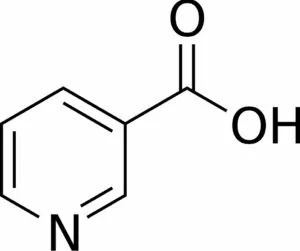Nicotinic Acid

Origin
Nicotinic Acid, widely found in both animal and plant sources, is an essential nutrient obtained from meats, poultry, fish, nuts, and legumes. This variety of sources makes it accessible for different dietary habits and preferences.
Also Known As
Nicotinic Acid is commonly recognized by several names, including:
- Niacin
- Vitamin B3
- Vitamin PP
Usages
Nicotinic Acid is prominently used in the prevention and treatment of niacin deficiency. Beyond its nutritional role, it has applications in healthcare, particularly in managing cholesterol levels and supporting heart health. It is also integrated into dietary supplements and fortified foods to ensure adequate intake.
Overview
Nicotinic Acid plays a crucial role in the body’s metabolic processes, being vital for the formation of coenzymes NAD and NADP. These coenzymes are indispensable for the conversion of food into energy, assisting in the maintenance of healthy skin, nerves, and digestion.
- Essential for the formation of NAD and NADP coenzymes
- Helps in lowering cholesterol and triglyceride levels
- Supports heart health and aids in maintaining healthy blood pressure
Common Dosage
The recommended daily intake of Nicotinic Acid is 14 mg for women and 16 mg for men, ensuring the body’s sufficient supply for its metabolic needs.
Summary
Nicotinic Acid, or Vitamin B3, is a multifaceted nutrient crucial for various bodily functions, from metabolic processes to heart health. Its wide availability in both animal and plant sources makes it an accessible component for many diets. Key benefits include:
- Prevention of niacin deficiency
- Support for metabolic processes and energy conversion
- Improvement in heart health and cholesterol management
For more information, call Nutrasky today.







